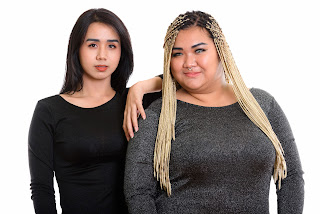What’s Behind the “War on Womanhood” Between Cis and Trans Women
The "War on Womanhood" between cis and trans women is a growing issue. It's a conflict brewing for years and shows no sign of slowing down. So, why are some cis women and trans women at odds with each other in the first place? Well, it isn't straightforward. The conflict has many reasons, ranging from trans exclusion and discrimination to over emphasizing cis privilege while ignoring the many challenges they also face comparatively. It's a messy situation that certainly isn't easy to resolve.
Understanding Cis and Trans Identities
Before delving into the conflict, it's essential to comprehend cis and transgender identities. Cisgender is a term used to describe individuals whose gender identity aligns with the sex assigned at birth. In contrast, transgender refers to individuals who don't identify or feel comfortable with the sex assigned at birth. The significant difference between cisgender and transgender is that cisgender individuals have societal and institutional privileges, while transgender individuals often face discrimination and biased attitudes. Also, many cis women feel unheard in the struggles that they face that trans women do not going through life as a woman for the entirety of their lives and carrying the systemic oppression, physical ailments and sexist expectations that come with being a cis woman. With this understanding, let's dive deeper into the roots of the conflict.
Roots of the Conflict
The roots of the conflict can be traced back to trans exclusion and discrimination. Many cis individuals fail to acknowledge the validity of trans women as women. This leads to exclusion from women's spaces and unequal treatment. In many ways, cis privilege and power dynamics give cis women the upper hand in society. On the other hand, cis women argue that trans women once benefited from male privilege due to being assigned that sex at birth, and didn't have to endure the same objectification, sexism, burdensome menstrual periods and/or pregnancy and childbirth that they did/do growing up and navigating society as cis women. This can cause resentment on both sides and perpetuate the "war on womanhood." It's important to recognize and address these underlying issues to promote unity among all women.
Impact on the Feminist Movement
Let's get real - the "war on womanhood" between cis and trans women is doing more harm than good for the feminist movement. Instead of standing together in solidarity, we allow this division to interfere with our fight for gender equality. When we focus on our differences rather than our shared experiences, we're misconstruing what feminism is all about. It's time to recognize that gender isn't black and white. As women, we come from all walks of life and have unique experiences that shape how we define ourselves. When we accept this diversity within our community, we can explore the intersection of gender and identity more constructively. So let's stop fighting each other and start fighting for each other.
Media's Role in Fueling the Rift
The media has played an instrumental role in deepening the rift between cis and trans women, perpetuating negative stereotypes and biases that fuel tension and misunderstanding. Instead of fostering unity and promoting understanding, media outlets often amplify and sensationalize the conflict, casting a further shadow on the path toward true equality. We must hold the media accountable for their role in exacerbating these divisions. By demanding representation and visibility for all women, irrespective of their gender identity or biology, we can challenge and dismantle the harmful narratives that perpetuate this destructive "war on womanhood."
Let us acknowledge that the "war on womanhood" between cis and trans women is a complex issue that requires a nuanced and empathetic approach. By confronting and dismantling the discriminatory practices, while also challenging the media's biases, we can foster unity among all women. Allowing both sides to exist peacefully and recognize their own struggles is the only way we can progress as a people. We must build a movement that embraces intersectionality and supports individuals of all gender identities and biological characteristics.
Author Bio
Kawana Wilson is an accomplished content writer with over five years of experience in writing, marketing (BSc), and administration. Dedicated to helping entrepreneurs and small businesses establish themselves as thought leaders, Kawana brings her extensive writing skills to attract relevant leads and create captivating content. Kawana's commitment to promoting diversity and inclusion shines through her work. As a woman of color, she actively amplifies underrepresented voices, contributing to a more inclusive society through her writing. Find her on social media @kawana_wilson.
















No comments